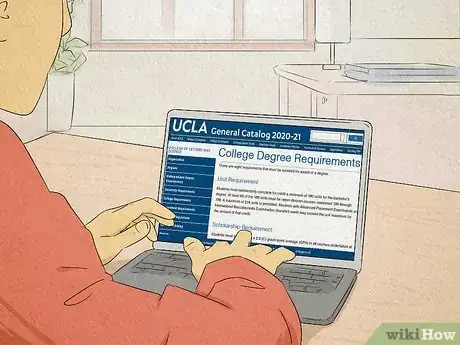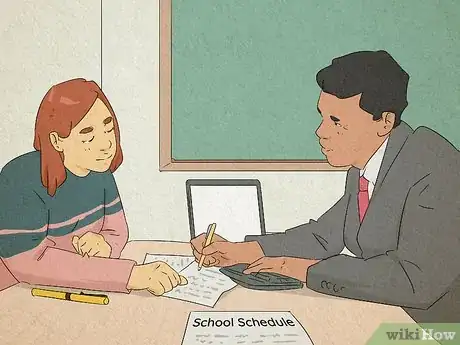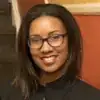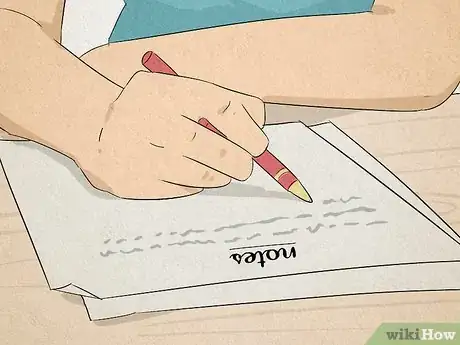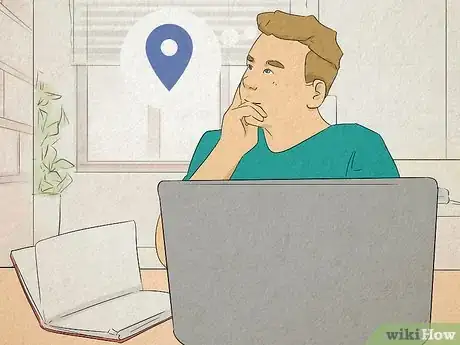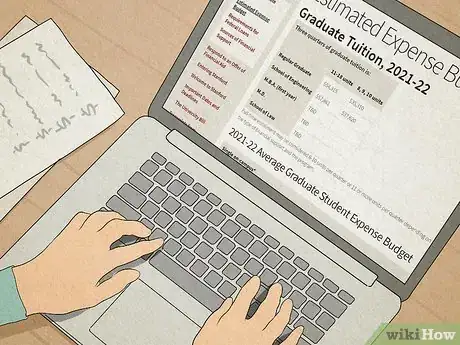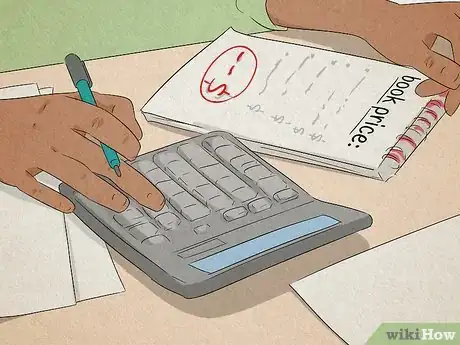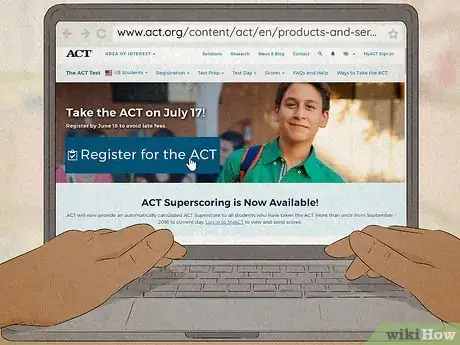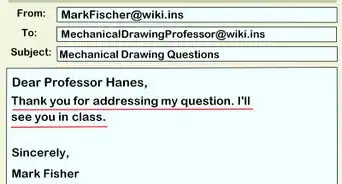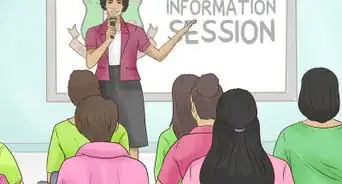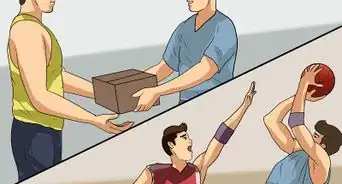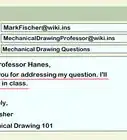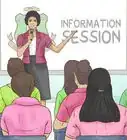This article was co-authored by Alicia Oglesby and by wikiHow staff writer, Madeleine Criglow. Alicia Oglesby is a Professional School Counselor and the Director of School and College Counseling at Bishop McNamara High School outside of Washington DC. With over ten years of experience in counseling, Alicia specializes in academic advising, social-emotional skills, and career counseling. Alicia holds a BS in Psychology from Howard University and a Master’s in Clinical Counseling and Applied Psychology from Chestnut Hill College. She also studied Race and Mental Health at Virginia Tech. Alicia holds Professional School Counseling Certifications in both Washington DC and Pennsylvania. She has created a college counseling program in its entirety and developed five programs focused on application workshops, parent information workshops, essay writing collaborative, peer-reviewed application activities, and financial aid literacy events.
There are 8 references cited in this article, which can be found at the bottom of the page.
This article has been viewed 73,812 times.
High school is a huge step in life from elementary school and middle school, and college feels even bigger. Once you reach high school, you're expected to start really thinking about your future. It can be a little overwhelming, but try to think of it as an opportunity to consider what kind of life you want to lead. Whether you're a freshman in high school who's excited to start looking at colleges or a senior who's feeling a little freaked by looming application deadlines, this article is here to help make preparing for college a smooth and stress-free process.
Steps
Expert Q&A
Did you know you can get expert answers for this article?
Unlock expert answers by supporting wikiHow
-
QuestionWhat can I do to get ready for college?
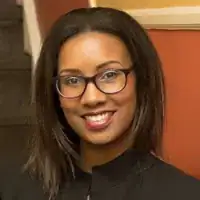 Alicia OglesbyAlicia Oglesby is a Professional School Counselor and the Director of School and College Counseling at Bishop McNamara High School outside of Washington DC. With over ten years of experience in counseling, Alicia specializes in academic advising, social-emotional skills, and career counseling. Alicia holds a BS in Psychology from Howard University and a Master’s in Clinical Counseling and Applied Psychology from Chestnut Hill College. She also studied Race and Mental Health at Virginia Tech. Alicia holds Professional School Counseling Certifications in both Washington DC and Pennsylvania. She has created a college counseling program in its entirety and developed five programs focused on application workshops, parent information workshops, essay writing collaborative, peer-reviewed application activities, and financial aid literacy events.
Alicia OglesbyAlicia Oglesby is a Professional School Counselor and the Director of School and College Counseling at Bishop McNamara High School outside of Washington DC. With over ten years of experience in counseling, Alicia specializes in academic advising, social-emotional skills, and career counseling. Alicia holds a BS in Psychology from Howard University and a Master’s in Clinical Counseling and Applied Psychology from Chestnut Hill College. She also studied Race and Mental Health at Virginia Tech. Alicia holds Professional School Counseling Certifications in both Washington DC and Pennsylvania. She has created a college counseling program in its entirety and developed five programs focused on application workshops, parent information workshops, essay writing collaborative, peer-reviewed application activities, and financial aid literacy events.
Professional School Counselor The best way to prepare for college is to get really good grades. That's a reflection that you fully understand the material you're being taught, which means you'll be prepared for undergraduate learning. It's also important to be well-rounded—most colleges want to see that students will be involved in a meaningful way when they're on campus.
The best way to prepare for college is to get really good grades. That's a reflection that you fully understand the material you're being taught, which means you'll be prepared for undergraduate learning. It's also important to be well-rounded—most colleges want to see that students will be involved in a meaningful way when they're on campus. -
QuestionI have excellent marks (all above 90) in high school, but I'm a slow reader, I know this will be a big problem at the university level, how do I tackle this issue?
 Community AnswerIf you currently get good grades, being a slow reader may not be such a problem in college. At my college, there are workshops on "strategic reading." These classes show you how to read academic writing strategically and efficiently to get the information you need to complete your assignments or participate in class discussions.
Community AnswerIf you currently get good grades, being a slow reader may not be such a problem in college. At my college, there are workshops on "strategic reading." These classes show you how to read academic writing strategically and efficiently to get the information you need to complete your assignments or participate in class discussions. -
QuestionWhat is an AP class?
 Community AnswerAP stands for Advanced Placement, which are the highest level of high school classes available in various subjects. Their structure is similar to college classes; the work is more difficult and the information more complex. AP classes are designed to prepare students for college and, in many cases, allow them to skip some introductory classes.
Community AnswerAP stands for Advanced Placement, which are the highest level of high school classes available in various subjects. Their structure is similar to college classes; the work is more difficult and the information more complex. AP classes are designed to prepare students for college and, in many cases, allow them to skip some introductory classes.
References
- ↑ https://www.schoolcounselor.org/asca/media/asca/Careers-Roles/WhyHighSchool.pdf
- ↑ https://www.collegetransfer.net/AskCT/WhatareDegreeRequirements/tabid/2380/default.aspx
- ↑ https://www.schoolcounselor.org/administrators/role-of-the-school-counselor
- ↑ Alicia Oglesby. Professional School Counselor. Expert Interview. 29 October 2020.
- ↑ https://www.educationcorner.com/k12-extracurricular-activities.html
- ↑ Alicia Oglesby. Professional School Counselor. Expert Interview. 29 October 2020.
- ↑ https://student.unsw.edu.au/note-taking-skills
- ↑ Alicia Oglesby. Professional School Counselor. Expert Interview. 29 October 2020.
- ↑ Alicia Oglesby. Professional School Counselor. Expert Interview. 29 October 2020.
- ↑ Alicia Oglesby. Professional School Counselor. Expert Interview. 29 October 2020.
- ↑ Alicia Oglesby. Professional School Counselor. Expert Interview. 29 October 2020.
- ↑ Alicia Oglesby. Professional School Counselor. Expert Interview. 29 October 2020.
- ↑ Alicia Oglesby. Professional School Counselor. Expert Interview. 29 October 2020.
- ↑ Alicia Oglesby. Professional School Counselor. Expert Interview. 29 October 2020.
- ↑ http://www.schoolguides.com/Reasons_to_Take_the_PSAT.html
- ↑ https://www.princetonreview.com/college-advice/college-visits

